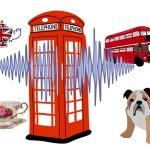Introduction to Australian Slang
Welcome to the world of Aussie slang! Have you ever felt a bit confused when chatting with Australians and wondered what on earth they were saying? Well, fear not, because in this blog post, we’re going to unlock the secrets of Australian slang and guide you through understanding those unique Aussie expressions.
Australian slang is like a secret code that locals use effortlessly in their daily conversations. It’s vibrant, colorful, and adds an extra layer of charm to the way Aussies communicate. But what makes Australian slang so special? How did it originate? And more importantly, how can you start using it yourself?
In this blog post, we’ll delve into the fascinating history behind Australian slang and discover what sets it apart from other forms of language. We’ll also explore some common Aussie words and phrases that will have you speaking like a local in no time.
So sit back, grab a cuppa (that’s Australian for cup of tea or coffee), and get ready to immerse yourself in the wonderful world of Australian slang. Let’s dive right in!
What Makes Australian Slang Unique?
Australian slang is like a secret treasure trove filled with unique expressions that make it stand apart from other forms of language. So, what exactly makes Australian slang so distinctive? Let’s uncover the essence of Aussie lingo and explore why it has captured the hearts and minds of people worldwide.
One remarkable aspect of Australian slang is its rich blend of influences. From Indigenous languages to British dialects, American pop culture to immigrant contributions, Australian slang has evolved into a melting pot that reflects the country’s diverse history. This linguistic fusion creates a tapestry of words and phrases that are undeniably Aussie.
Additionally, Australian slang embraces an informal and laid-back style, mirroring the nation’s relaxed attitude towards life. Aussies are known for their friendly nature and love for abbreviating words. It’s common to hear phrases like “arvo” (afternoon), “brekkie” (breakfast), or even “#Straya” (Australia) in everyday conversations.
Furthermore, Australian geography plays a role in shaping its unique vocabulary. With vast landscapes ranging from pristine beaches to rugged outback regions, Aussies have developed terms specific to their surroundings. For instance, you may come across phrases such as “thongs” (flip-flops), “barbie” (barbecue), or even “ute” (utility vehicle) – all inspired by Australia’s outdoor lifestyle.
In essence, what sets Australian slang apart is its ability to capture the country’s spirit in a few carefully chosen words. It conveys warmth, humor, camaraderie – everything that makes Australia special. So get ready to immerse yourself in this lively linguistic world as we delve further into common Aussie expressions – fair dinkum!
Common Australian Slang Words and Phrases
Ready to dive into the colorful world of Australian slang? Let’s explore some common Aussie words and phrases that will have you speaking like a true blue local in no time. From unique greetings to playful expressions, these linguistic gems will make you feel right at home Down Under.
One of the most iconic Australian slang words is “mate.” Used as a term of endearment or camaraderie, Aussies use it to refer to friends, acquaintances, or even strangers! So don’t be surprised if someone greets you with a friendly “G’day mate!”
Another popular phrase you might come across is “fair dinkum.” This expression means truthful or genuine and is often used to show authenticity. For example, if an Aussie says they had a “fair dinkum” experience, it means it was truly remarkable!
Aussies also love their abbreviations. You’ll frequently hear terms like “arvo” for afternoon or “brekkie” for breakfast. And when it comes to inviting someone over for a casual barbecue with family and friends, locals fondly call it a “barbie.”
To express surprise or disbelief in an amusing way, Australians might exclaim “you beauty!” It’s their way of showing excitement and delight about something unexpected.
And let’s not forget about the famous Australian wildlife! Have you ever heard someone mention seeing a cute creature called a kangaroo? Well in Australia, they affectionately shorten it to just “‘roo.”
These are just a few examples of the countless captivating Australian slang words and phrases out there. So embrace this lively linguistic world as we continue our journey into using Australian slang in everyday conversations—the next step towards sounding like an authentic Aussie! Cheers mate!
Using Australian Slang in Everyday Conversations
Ready to take your conversations to the next level with Australian slang? Using these unique expressions can add a touch of Aussie charm and help you connect with locals on a whole new level. So, let’s dive in and discover how you can incorporate Australian slang into your everyday chats.
When using Australian slang, it’s important to remember that context is key. Familiarize yourself with the meanings and appropriate situations for different words or phrases. For example, calling someone “mate” in a friendly conversation is widely acceptable, but using it in a formal setting may come across as too casual.
To sound more like a local, try sprinkling some abbreviated words into your sentences. If you’re heading out for breakfast with friends, mentioning that you’re going for “brekkie” will impress them and show your enthusiasm for embracing the Aussie lingo.
Another great way to use Australian slang is by expressing excitement or approval. For instance, if someone shares good news with you, respond with an enthusiastic “you beauty!” or exclaim “that’s bloody ripper!”—a phrase meaning something is fantastic or excellent!
Remember to observe how Aussies around you use slang and follow their lead. Listening closely will help you understand the right moments to incorporate these expressions naturally into conversations without feeling forced.
However, it’s essential to be mindful of cultural appropriation and respect local customs when using slang from another country. As an outsider embracing Australian culture through language, always be respectful and don’t overdo it just for attention.
With these tips in mind, go ahead and have fun experimenting with Australian slang! It’s all about creating connections and enjoying the vibrant linguistic tapestry that defines Australia.
Australian Slang Dos and Don’ts
As you embrace Australian slang, it’s important to navigate the world of dos and don’ts to ensure you’re using these expressions appropriately. Understanding the cultural nuances and etiquette associated with Australian slang will help you avoid any unintentional blunders and ensure your conversations flow smoothly.
Firstly, do observe and listen to how Australians use slang in different contexts. Pay attention to the tone, timing, and appropriateness of certain words or phrases. This will help you gauge when it’s appropriate to use them in your own conversations.
Do start slowly and gradually incorporate Australian slang into your speech. Trying too hard or overusing certain expressions may come across as inauthentic or jarring. Instead, aim for a natural usage that enhances your connection with locals.
When using Aussie slang, do be mindful of whom you’re conversing with. Formal environments or professional settings may require a more standard form of language rather than heavy use of colloquialisms.
Don’t be offended if someone corrects or explains a phrase to you. Aussies are generally friendly and helpful when it comes to sharing their unique linguistic quirks – embrace the opportunity to learn from them!
Don’t assume that all Australians speak the same way or use identical vocabulary. Slang terms can vary regionally across Australia, so be open-minded and adaptable as you encounter new expressions from different areas.
Lastly, don’t forget that respectful communication is key when engaging with any culture’s unique language features. Be aware of potential cultural appropriation pitfalls and always approach Australian slang with appreciation rather than imitation.
By following these dos and don’ts of using Australian slang, you’ll navigate this linguistic landscape gracefully while forming genuine connections with locals along the way.
Fun Facts about Australian Slang
Ready for some fun facts about Australian slang? Get ready to discover fascinating tidbits that will make you appreciate the unique charm of Aussie expressions even more. From surprising origins to quirky meanings, these facts will bring a smile to your face and deepen your understanding of Australian culture.
Did you know that Australians have a knack for rhyming slang? Similar to Cockney rhyming slang in London, Aussies playfully substitute words with rhymes. For example, “money” becomes “frog and toad,” or “road” transforms into “frog.” It’s like having an everyday language game!
Ever wondered why Australians say “G’day”? Well, it’s not just a casual greeting; it’s a shortened form of “good day.” This laid-back expression perfectly encapsulates the Aussie spirit of friendliness and informality.
You may have noticed that Aussies love abbreviations. But did you know they’ve taken it to another level by shortening words as small as possible? The term for this is called the ‘diminutive’ form. They’ll effortlessly say things like “brekkie” for breakfast or “uni” instead of university.
To show their affectionate nature through language, Aussies often add “-o” or “-ie” at the end of words when referring to someone or something special. So instead of saying dog, they might say “doggie,” or instead of bottle, they might say “bottle-o”—it’s all about adding a touch of endearment!
Lastly, while Australian slang has become widely recognized worldwide today, its origins can be traced back to early British convict settlers who developed their own coded vocabulary as a way to communicate without being understood by authorities—a secret linguistic club!
These fun facts about Australian slang highlight its playful nature and offer insights into how culture shapes language. Embrace these lively quirks along your journey into understanding Aussie expressions – crikey, you’ll be a fair dinkum slang expert in no time!
Conclusion: Embrace the Aussie Lingo
Congratulations, mate! You’ve delved into the vibrant world of Australian slang and discovered the richness it brings to conversations. From greetings like “G’day” to playful expressions like “mate,” you’re well on your way to sounding like a true blue Aussie.
Throughout this guide, we’ve explored what makes Australian slang unique, learned some common words and phrases, discussed how to use them in everyday conversations, and covered important dos and don’ts. We even indulged in some fun facts that shed light on the origins and quirks of Aussie lingo.
Now armed with this knowledge, it’s time to embrace the Aussie lingo with confidence. So go ahead and incorporate these delightful expressions into your chats with friends or colleagues from Down Under. Not only will you impress them with your newly acquired language skills but also forge genuine connections by immersing yourself in their culture.
Remember, adaptability is key when using Australian slang. Observe how locals interact and adjust accordingly for each situation—whether it’s casual banter or more formal settings. As you continue on your journey of exploring languages and cultures, keep an open mind and enjoy the enriching experience that linguistic diversity brings.
So chuck a sickie (take a day off), grab a snag (sausage), put another shrimp on the barbie (barbecue), or simply have a bloody ripper time embracing all things Australiana!
Call to action: Ready for more linguistic adventures? Explore our blog series on different types of slang around the globe! From British colloquialisms uptown to American street talk downtown – there’s a whole world of captivating language waiting for you!









